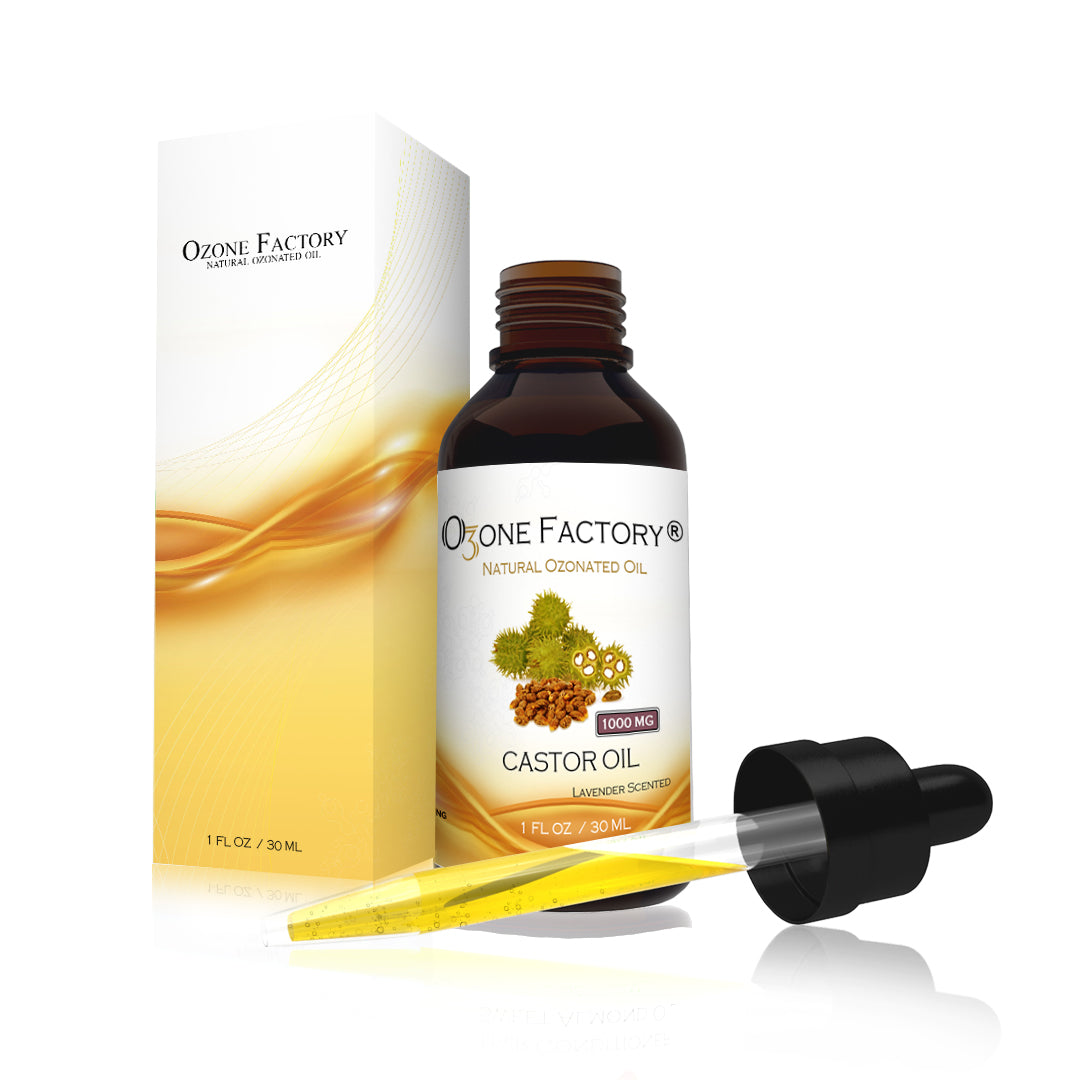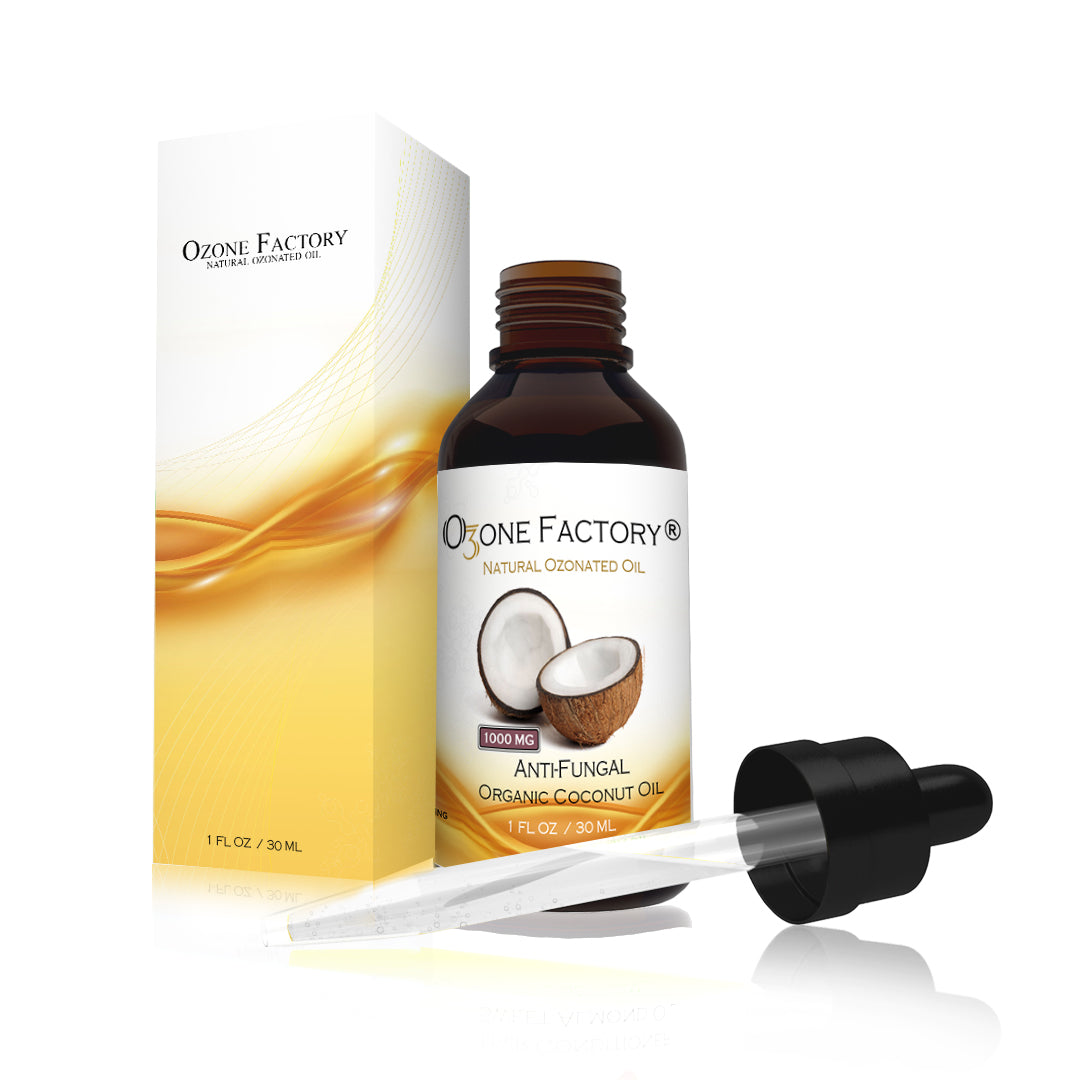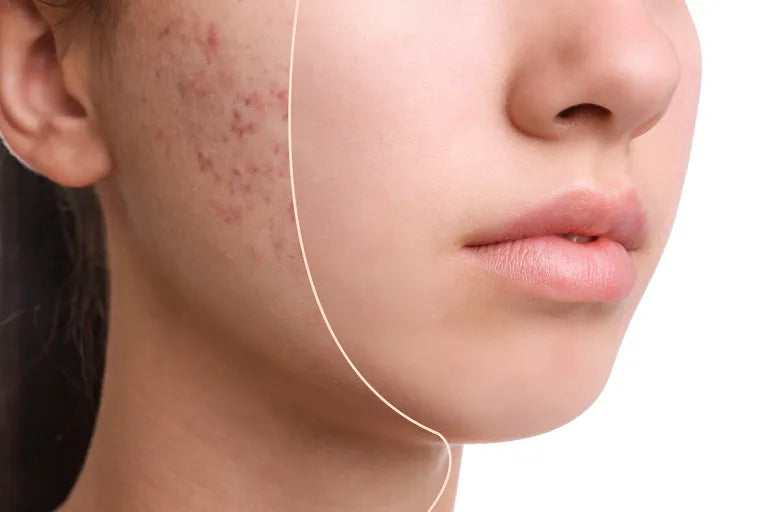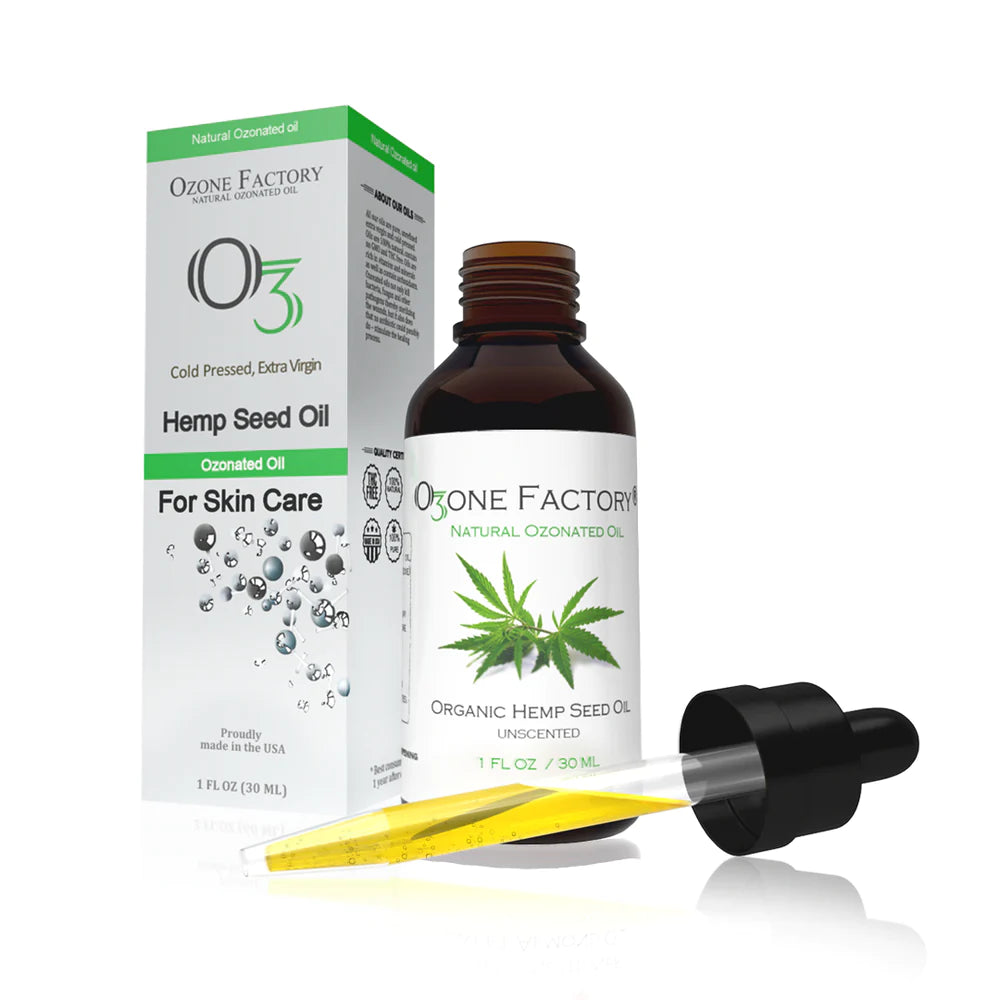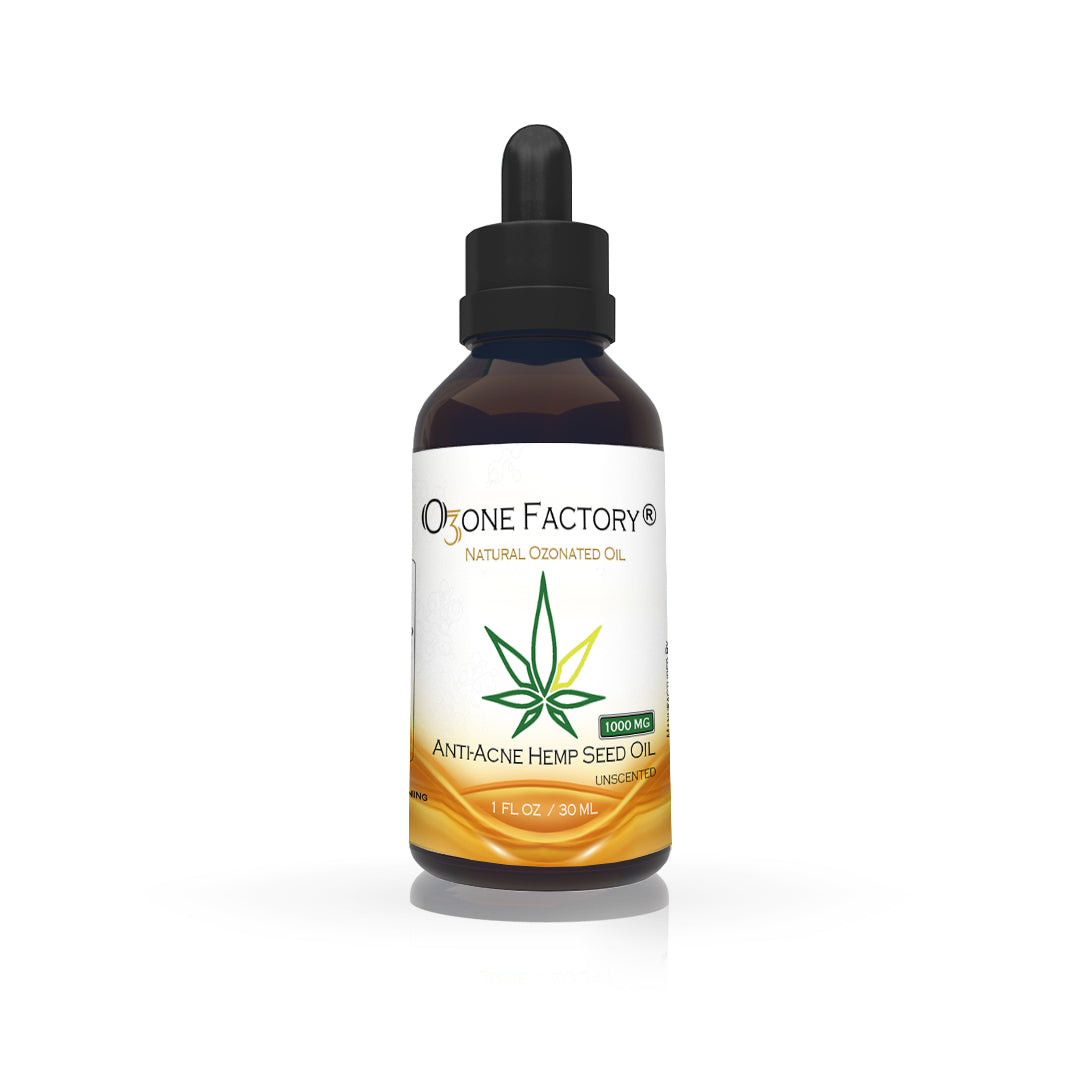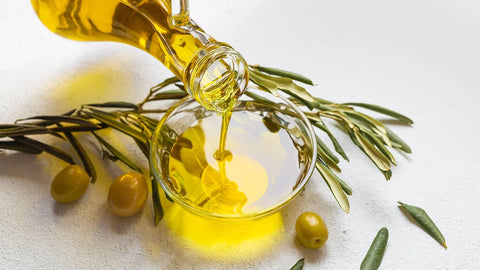
Olive oil has been used since ancient times as a moisturizer for skin and hair. These days, however, coconut oil has been getting all the beauty world and wellness buzz. From haircare to lip balm to coconut pulling – a dental health trend where you swish oil in your mouth for anywhere from 5 to 20 minutes – coconut oil seems like it can do it all.
But which is better for skin care? While they both deliver a boost of moisture and a smooth, silky sheen, there are some key differences between these two hydrating natural oils. We’ll compare the two here in dependence of their chemical proprieties and skin benefits.
Which oil is the most moisturizing?
Ozonated Coconut Oil
Rich and lush, coconut oil is a natural moisturizer. It makes skin feel soft, supple, and smooth, and gives off a light, glowy sheen.
That said, there are two types of moisturizers: occlusives and humectants. Oils, including both coconut oil and olive oil, are occlusives.
Occlusives coat the skin and keep moisture inside so that it doesn’t evaporate.
Humectants attract moisture from the environment or the ingredients in the product itself and draw it into the skin. Two humectants commonly used in skin care products are hyaluronic acid and glycerin.
Ozonated coconut oil also contains high amounts of linoleic acid. This is an unsaturated omega-6 fatty acid that acts as an emollient and can also boast some anti-aging benefits, too. An emollient soothes the skin, leaving it feeling silky-smooth and supple.
Ozonated Olive Oil
As olive oil is also an occlusive, applying ozonated olive oil to the skin feels rich and moisturizing. In addition to giving skin a moisturized feeling, olive oil contains fatty acids that help dry skin, including oleic acid, palmitic acid, and linoleic acids.
Olive oil is also an emollient, so skin feels smooth and moisturized.
Conclusion
Both ozonated coconut oil and olive oil are occlusive moisturizers, which means they do a good job sealing moisture in. They’re also emollients, so they soothe and smooth the skin for a lush, moisturized feel. However, they don’t draw moisture into the skin.
To make either oil a more well-rounded moisturizer, combine it with another product that contains a humectant.

Which oil has better antimicrobial properties?
Ozonated Coconut Oil
Some studies have found that the medium-chain fatty acids found in ozonated coconut oil have impressive antimicrobial properties. These fatty acids, which are a form of saturated fat, make up 65% of the total composition of ozonated coconut oil. Lauric acid, which makes up 49%, is particularly effective at killing harmful microorganisms and bacteria.
As such, ozonated coconut oil can be used on skin infections caused by bacteria or fungi, like athlete’s foot, folliculitis, and acne.
Ozonated Olive Oil
Ozonated Olive Oil also has some antimicrobial properties. The main polyphenol compounds found in extra olive oil include oleuropein, hydroxytyrosol, and oleocanthal, which possess anti-inflammatory, antioxidant, and antimicrobial properties.
Some research shows that olive oil can help kill the bacteria that causes acne to form, though more studies are needed, as this sample size was rather small.
Conclusion
Thanks to the power of lauric acid, one of the medium-chain fatty acids in coconut oil, ozonated coconut oil has impressive antimicrobial and anti-fungal properties. It can be used for athlete’s foot and other mild skin maladies. Ozonated olive oil also contains polyphenol compounds that are shown to be antimicrobial, though these are less effective at killing microorganisms than coconut oil.

Does it have antioxidants?
Ozonated Coconut Oil
Antioxidants help with oxidative stress, a process that can produce free radicals. These are potentially dangerous chemicals that can damage cells and could lead to the development of cancer, in the worst cases.
Ozonated coconut oil does contain antioxidants, but not to the extent of Ozonated Olive Oil.
Ozonated Olive Oil
The antioxidants, especially the omega-3s and vitamins A and K, found in olive oil might work to prevent premature aging when applied topically.
And there’s more: some intriguing research suggests that applying olive oil after sun exposure could protect against cells that cause cancer.
In this study, researchers applied olive oil to the skin of mice that had been exposed to potentially dangerous UV rays. The mice with olive oil had significantly less tumor growth than the mice that did not have olive oil on the skin. More studies are needed on the effects on human skin, but it is an exciting finding.
Conclusion
While ozonated coconut oil has antioxidants, the refining process doesn't do much good for getting those antioxidants to you, the consumer, leaving olive oil the victor when it comes to antioxidant benefits.
Which is Better: Ozonated Coconut Oil or Ozonated Olive Oil?
To sum up, neither is “better” across the board. Ozonated coconut oil and ozonated olive oil have a lot in common, when it comes to skin care benefits.
If you’re looking for specific benefits, however, there are a few key differences to note.
Ozonated olive oil has more antioxidants than coconut oil.
Ozonated coconut oil has more antimicrobial properties, making it a better choice for fighting funguses and infections.
As ozonated coconut oil feels heavier than olive oil, some may feel it’s too strong for the face. Others will love the rich feel. In the end, it comes down to preference.

